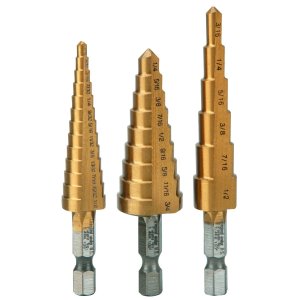jackpax
Junior Member
- Messages
- 25
Here's the scenario: I'm looking at a Velocity body which only has the option in the builder for Strat style controls. IE, 3 circular holes (volume, tone, tone) and a long thin rout for a 5 way blade switch. The build will have 2 humbuckers with no split coil or other fancy wiring. The positions will be neck/neck&bridge/bridge. So I only want a 3 way switch. And I'm partial to a Gibson style toggle. The builder has the option to not have the blade switch rout. So if I buy a finished body, how destructive is it to drill a round hole large enough to accommodate the toggle switch? I'm new to this so buying an unfinished piece and finishing at home after drilling the hole is out of the question. Any and all thoughts are welcome and much appreciated.



